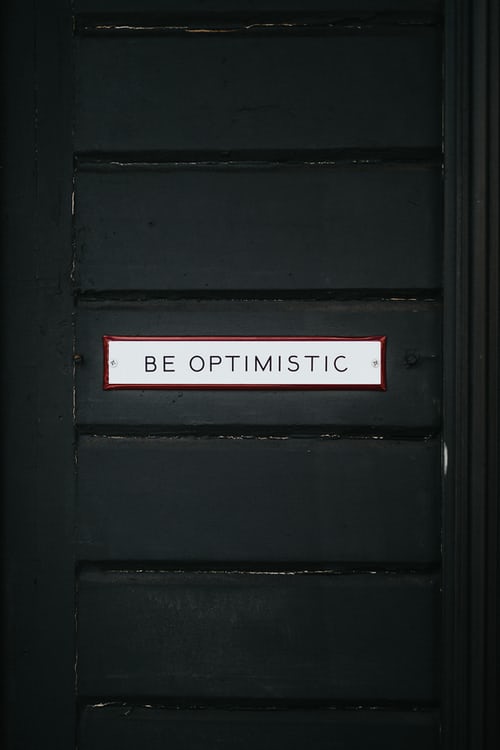(This post is the last in a series on toxic positivity.)
Is your life missing peace? Does your soul feel empty and hungry? Does it feel as though the light in your life has been snuffed out?
At one time or another, most—if not all of us—have felt completely hopeless and experienced all the side effects of it. Chaos, sadness, depression, a lack of purpose or promise.
And we often need to express those scary feelings to another person. The kind of response we receive may end up making us feel worse and wondering if there is anyone, anywhere who understands our pain and is willing to walk alongside us while we’re groping and fumbling to get back into life.
In these times of heartache and trouble, what we need is not a pious platitude or super upbeat “think good thoughts and be happy” response. We need reality, and a reminder that goodness is out there, and we can find and have it.

The right response to deep grief and anguish—
For the last month we’ve been exploring a too-positive response to someone’s expression of grief and heartache and the problems this kind of response can cause.
And I also noted that too often Christians are the first to chime in with cheery, smiley, bordering-on-superficial responses. While the Bible passages they might share are true, they are shared improperly or at untimely moments.
Today we’ll take a look at how a writer of the Bible chose to response to the most horrendous of circumstances, with the reality of the situation, and the truth about God’s character.

The Lamentations of Jeremiah—
While we can find outpouring of heart and grief in the Psalms, one only need turn to Lamentations to locate funeral or dirge poetry and outpouring of grief so deep, the reader wonders how the writer can even go on living.
The dirges are for a people snatched from their homes and beloved city and dragged off to another country. He bewails the crumbling and destruction of their magnificent house of worship. The words recount a once-beautiful city and the ruinous state it now lies in. The tone and setting are dark and dismal.
Yet even after his outpouring of grief in his honest words of how he feels beaten up and bruised by God, Jeremiah calls to mind a sense of hope and where it comes from.
He reminds himself and the people that God is unchanging and faithful.
For twenty verses the prophet pours out his spiritual, emotional and physical agony, and then writes the well-known verses:
“Yet this I call to mind
and therefore I have hope:
Because of the LORD’S great love we are
not consumed,
for his compassions never fail.
They are new every morning;
great is your faithfulness.”
And he continues:
“I say to myself, ‘The LORD is my portion;
therefore I will wait for him.’
The LORD is good to those whose hope is
in him,
to the one who seeks him;
It is good to wait quietly
for the salvation of the LORD.”
For the rest of the chapter, which is a total of sixty-six verses, Jeremiah runs between profound lament, calling on God and voicing faith in Him, extolling God’s faithful character, and admitting to the people’s sins that brought on some of this calamity in the first place. He is raw and honest.
And keep in mind that the people were suffering unimaginable torment; in a time so bad they had reduced themselves to cannibalism. It is ugly, it is desperate, and it is grievous.
It certainly would not be a time for anyone to throw out “Look on the bright side. It’s not as bad as you think. God is good. All the time, God is good.”
And yet that is exactly what Jeremiah boils it down to: that God is indeed good and faithful and just, and this devastation they’re living through will not last forever, because God will make sure it eventually ends.
But before Jeremiah gets around to stating those facts, he grieves openly, completely and without apology. And because of this honesty, we can appreciate that cheery, pat answers and out-of-context Bible verses or ones delivered too quickly aren’t realistic, they don’t reflect life, and they don’t really reflect the Bible.

What a Hurting Person Needs—
As pastor Alistair Begg says,
“Hurting people want to know if there’s anybody around that understands how they feel, what they’re going through.”
A hurting person needs to know that the theology of God is not always one of sugary words and upbeat jargon but is also one of suffering, of pain, of lament. Of honest grief.
They don’t need cheerleaders. They need big hearts, open arms and listening ears.
Sometimes it’s okay in life to imitate the grieving, lamenting prophet. Sometimes it’s best to get it all out so you can think more clearly, to purge and cleanse your heart and soul.
While we can remind ourselves that God is, indeed, always faithful, always good, and always available to us, we also need to acknowledge that life is hard. Sometimes real hard.
Sometimes so hard it feels as though it’s going to break you.
And when we’ve poured out our hearts and come to the very end of ourselves, or listened to someone else do it, then is the time—in order to keep on going and persevering—we can and should remember, and remind a grieving person:
Because of the LORD’S great love we are
not consumed,
for his compassions never fail.
They are new every morning;
great is your faithfulness.
As Pastor Begg encourages:
“Bring all that you know of God to bear on all that you know of your circumstances.”
- Acknowledge your or someone else’s circumstances.
- Be realistic about them.
- Weep over them if you must.
- And then remember God and bring Him into the healing equation.
Call to mind that the steadfast love of the Lord never ceases, and His mercies never end.
And that’s what gives you hope.
It’s about volition. And timing. And being honest about life and the sometimes horrendous reality of it.
And then remembering that a new morning is coming and because Jesus Christ lives, we can, indeed, face all our tomorrows.

Invitation—
If you are finding it difficult to call to mind the hope you have in God, please reach out to me with a text to 520-975-6109. Tell me your name and a little about your circumstances, and if you need someone to talk to about them. I’m available to help you with your healing.
And if you don’t know this amazing, forgiving God of hope and would like to know Him and have a relationship with Him, send a text message to the same number. Don’t let another day go by without making this decision!
Until next week,
Be honest with your grief and allow others to be too. Listen well and open your heart—to the pain of others and to the God who hears and heals.
Blessings,
Andrea
“Beloved, I pray that you may prosper in all things and be in health, jut as your soul prospers.”
Andrea Arthur Owan, M.S., A.T., R., is a health and fitness pro, speaker, award-winning inspirational writer, memoirist, and senior-ordained chaplain (IFOC). She helps people thrive physically, emotionally and spiritually and recover from grief, loss and trauma.






